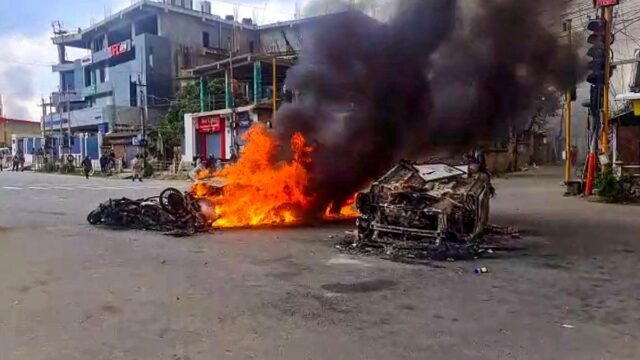Manipur sudden spark is concern we tried to raises complex and sensitive issues related to natural resources, indigenous communities, governance, and conflict. Let’s break down some of the key elements and explore the implications:
1. Geological Survey Findings: The discovery of valuable minerals like nickel, copper, and Platinum Group Elements (PGE) in Manipur’s hills has the potential to attract mining interests. Such findings can bring economic opportunities but also come with environmental and social challenges.
2. Tribal Inhabitants: The hills in Manipur are home to tribal communities who have lived there for thousands of years. These communities often have unique cultures, languages, and traditional ways of life closely connected to their land.
3. Land Distribution: With 89% of Manipur’s land being hills, the geographical distribution of these valuable minerals is in tribal territories. This raises questions about how the potential benefits from mining will be shared with the local communities and whether their rights and interests will be protected.
4. Mining Interests and Political Links: The passage suggests that private companies with close ties to the ruling party are interested in obtaining mining rights. If true, this raises concerns about transparency, fair practices, and potential conflicts of interest.
5. Scheduled Tribes Status: The decision to award the Meitei community Scheduled Tribes (ST) status is seen as a strategy to potentially enable them to occupy the hill estates, which could then be sold to mining companies at a profit. This has the potential to affect the traditional tribal communities who have long inhabited these areas.
6. Tensions and Conflict: The introduction of mining interests and land distribution issues could escalate existing tensions between different communities in Manipur, leading to social unrest and conflict. This may result in people losing their homes, loss of lives, and violence, as mentioned in the passage.
7. Aborigines and Displacement: The situation described in the passage highlights a common global issue, where indigenous or aboriginal populations often face displacement and inadequate compensation when valuable resources are found on their ancestral lands.
8. Environmental Impact: Large-scale mining activities can have significant environmental consequences, including deforestation, habitat destruction, water pollution, and air pollution. These impacts can further exacerbate conflicts between mining companies and local communities concerned about their environment and livelihoods.
9. Need for Inclusive Development: The situation in Manipur calls for a careful and inclusive approach to development. It is essential to consider the interests and rights of the tribal communities and other stakeholders while harnessing the potential economic benefits of the minerals.
10. Good Governance and Accountability: Addressing the issues surrounding mining and resource distribution requires good governance, transparency, and accountability from both the government and private companies involved in the process.










